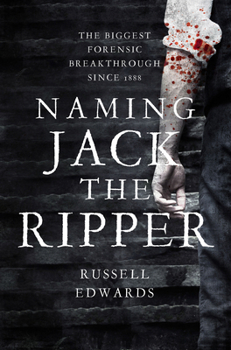Naming Jack the Ripper
Select Format
Select Condition 
Book Overview
After 125 years of theorizing and speculation regarding the identity of Jack the Ripper, Russell Edwards is in the unique position of owning the first physical evidence relating to the crimes to have emerged since 1888. This evidence is from one of the crime scenes, and has now been rigorously examined by some of the most highly-qualified forensic scientists in the country who have ascertained its true provenance. With the help of modern forensic techniques, Russell's ground-breaking discoveries provide conclusive answers to many of the most challenging mysterious surrounding the case.
Format:Paperback
Language:English
ISBN:0521477417
ISBN13:9780521477413
Release Date:November 1994
Publisher:Cambridge University Press
Length:384 Pages
Weight:1.36 lbs.
Dimensions:0.9" x 6.1" x 9.1"
Customer Reviews
1 customer rating | 1 review
Rated 5 starsGreat Book!
By Denise, Verified Purchase
What an exciting and riveting book this is. Very detailed from beginning to end. I recommend this book highly. All it took was a shawl! The author has you hooked to this book from beginning to end with all the details of the grisly murders in White Chapel and then his research with a shawl that was taken from a murder scene. It is quite a story. I read it in a day and a half. Quite the page turner.
0Report













